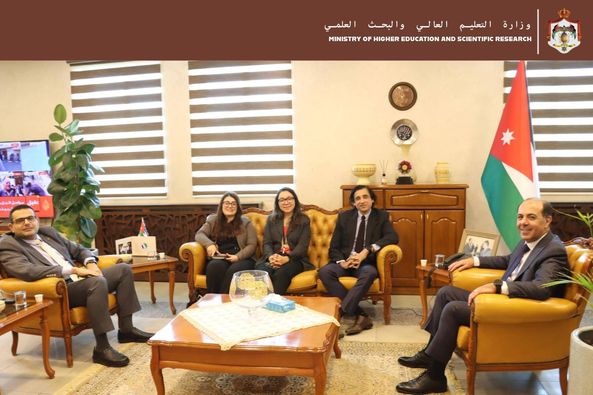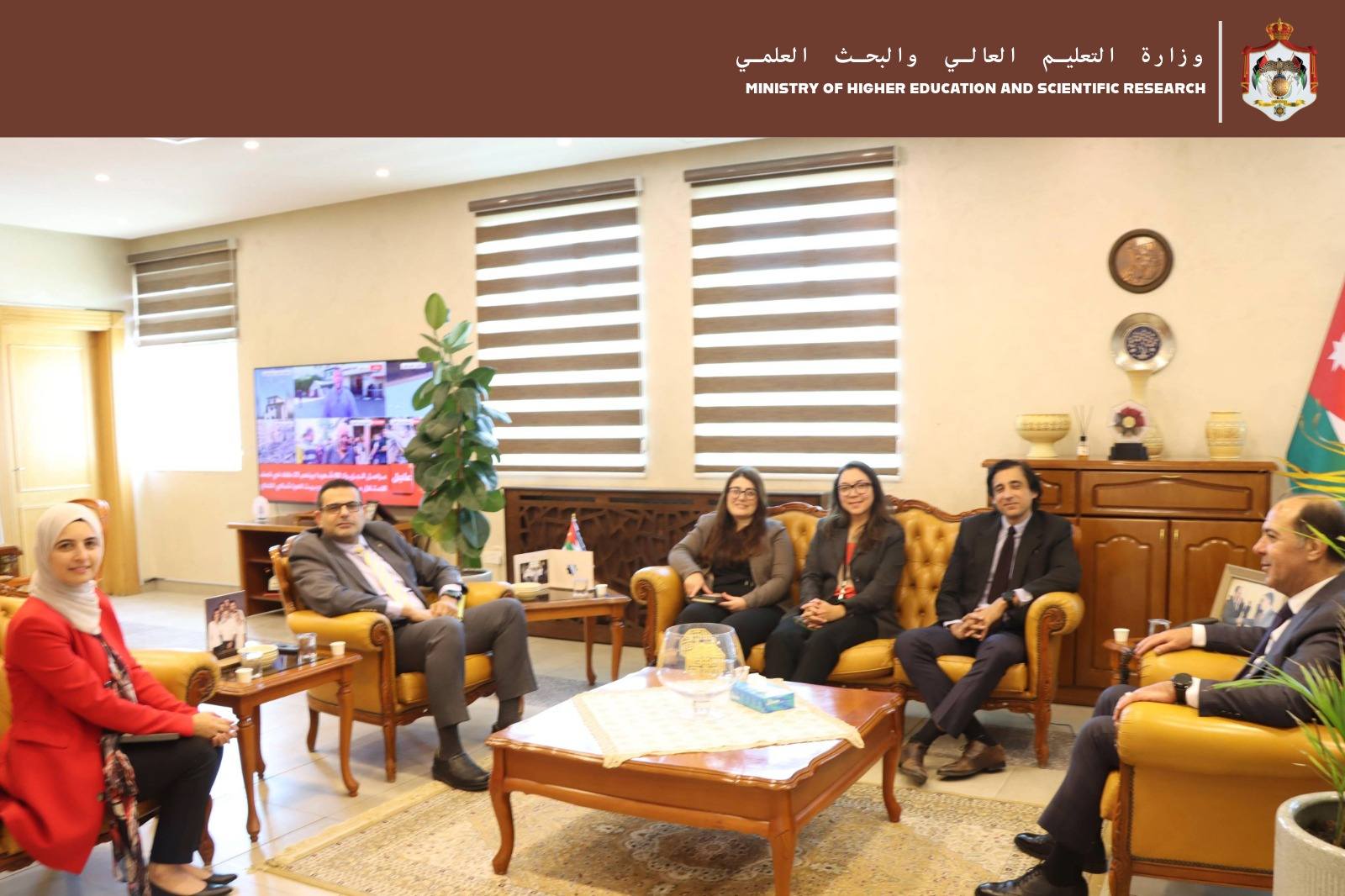
Dr. Mamoun Dabie, Secretary General of the Ministry of Higher Education and Scientific Research, met in his office at the ministry with the IREX team responsible for implementing the early education project "Asas," funded by USAID.
The team included Mr. Cameron Mirza, Project Director; Dr. Saeb Khasawneh, Director of Pre-Service Teacher Preparation Programs; Ms. Heba Fouda, Policy and Systems Director; Ms. Hala Ayoub, Institutional Performance Development Advisor; and Dr. Ahlam Al-Kouz, Curriculum Development Advisor. Dabie commended the efforts made in this project and the significant achievement of reviewing and developing the undergraduate programs in Early Childhood Education and Classroom Teacher programs in partnership with the Accreditation and Quality Assurance Commission for Higher Education Institutions.
The project will increase practical training hours for undergraduate students in educational sciences faculties from 12 to 18 credit hours.
He emphasized the importance of universities ensuring that these programs align with international standards and best practices, while preserving Jordanian Arab culture.
In turn, Mirza expressed the implementing team’s appreciation for the support provided by the Ministry of Higher Education and Scientific Research, which played a crucial role in the success of the project's first year.
The project has been implemented at three public universities: the University of Jordan, Yarmouk University, and the Hashemite University.
He also highlighted the future outlook of expanding the project to include new universities, thereby covering a larger geographical area of the Kingdom and meeting the need for specialized early education teachers.
Khasawneh emphasized the importance of focusing on modern teaching and assessment methods to shift toward learner-centered education, which encourages reflection, critical thinking, problem-solving, and connecting theory with practice through a focus on practical training.
He stressed the role of universities and schools in forming fruitful partnerships to ensure that students undertake high-quality practical training, producing capable teachers who can provide an education aligned with contemporary changes and the labor market needs in Jordan and the Arab region.
Fouda outlined the "Asas" team's approach, which has centered on reviewing the regulatory policies of the early education system in Jordan in collaboration with the Accreditation and Quality Assurance Commission for Higher Education Institutions and the Ministry of Education.
The goal is to raise the minimum practical training requirement in all educational sciences faculties in the Kingdom.
Fouda emphasized efforts to organize coordination mechanisms between universities, schools, and both public and private kindergartens to provide students with practical training
She also highlighted the importance of ongoing work with the Ministry of Education to enhance the role and training of lead teachers who support student teachers during their practical training according to standardized mechanisms. At the end of the meeting, Dr. Mamoun Dabie expressed the Ministry of Higher Education and Scientific Research's appreciation for the support provided by USAID and his hope that this support would lead to real changes in university programs, aligning with national efforts to develop the education system and to train teachers and educational leaders.
